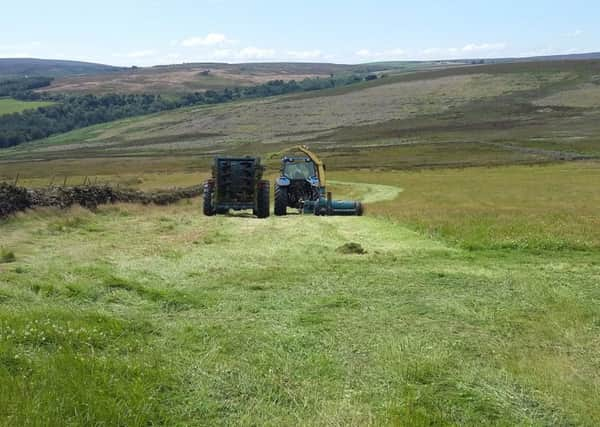Wildlife groups say farm subsidies must go


Brexit is an opportunity for a major rethink on how subsidies are spent and the priority should be supporting sustainable farming which produces good food and rewards farmers for protecting the countryside, they said.
Farmers insisted that a great deal of environmentally supportive farming is already carried out via targeted European Union subsidy schemes and on a voluntary basis, and that any new policies need to find the right balance to meet the needs of a growing population.
Advertisement
Hide AdAdvertisement
Hide AdNonetheless, the National Trust, WWF UK, the Wildlife Trusts and the RSPB accuse the current subsidy regime of failing the environment.
More than £3bn in EU payments were shared between farmers last year, mostly as direct payments to landowners, which, the groups highlighted included wealthy aristocrats and a Saudi prince.
Steve Trotter, director of the Wildlife Trusts, England, said: “The Government needs to be bold and take a radical new approach to the way public payments are used to deliver the things we need from a healthy countryside, like clean water, beautiful landscapes full of wildlife, nutritious food, healthy soils, jobs, room for people to exercise close to nature, as well as practical benefits like reduced flood risk.
“This is a once in a generation chance to help reverse the huge decline in wildlife and it must not be missed.”
Advertisement
Hide AdAdvertisement
Hide AdIn the meantime - until a post-EU subsidy regime is fully in place - the conservation groups want all existing wildlife-friendly schemes to remain open.
They also want an independent commission to be set up to examine the future of policy on the environment, farming and rural development, and a public debate to take place on the future of policies to look after the countryside.
As new policy is formulated, farmers are committed to building on their already “considerable” achievements in caring for the countryside, according to Adam Bedford, regional director of the National Farmers’ Union in Yorkshire, who said: “As we approach a life outside the EU, it’s important to have an open discussion about our future agricultural and environmental policies.
“The NFU is already in the process of consulting widely with our members, but the debate must start with recognition for the contribution the industry already makes to the nation.
Advertisement
Hide AdAdvertisement
Hide Ad“As primary food producers, farmers support a national food and drink sector that’s worth £108bn and employs 3.9 million people. As the custodians of the countryside, farmers have embraced both environmental stewardship schemes and voluntary measures.”
VOLUNTARY FARM EFFORTS ADD UP
Many Farmers are going out of their way to farm with nature in mind, the NFU’s Adam Bedford said.
During the 2014/15 crop year, more than 268,000 hectares were managed voluntarily under the Campaign for the Farmed Environment. Measures included grass buffer strips next to watercourses, pollen and nectar mixes for bees and efforts to reduce erosion and protect soil.
“The challenge now is to help shape a new domestic agricultural policy that helps farmers and growers thrive, continue to feed a growing population and improve Britain’s food self-sufficiency from the current 61 per cent,” Mr Bedford said.